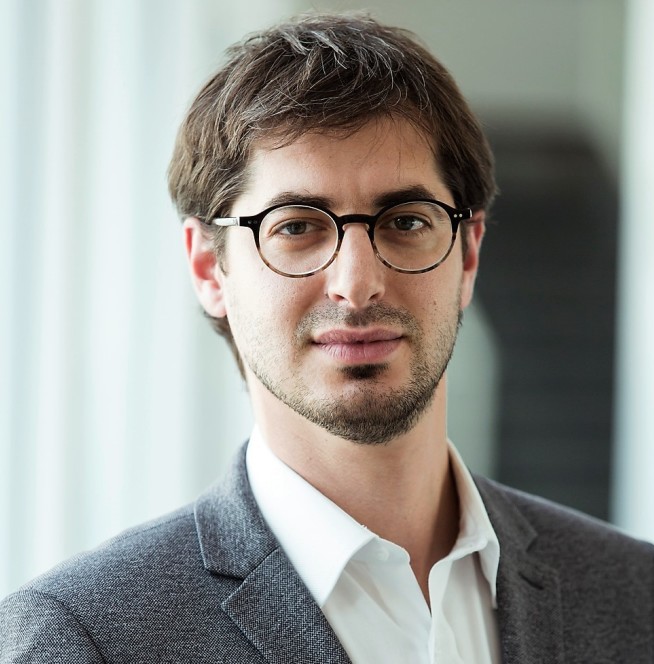
Since graduating from Imperial with an MSc in Environmental Engineering in 2010, Alexis Grosskopf's career has revolved around innovation and sustainable development. In 2017, he moved to South Africa to take charge of the activities of the French South African Tech Labs, an incubator with social impact in the field of IT, before diving into the oceans with OceanHub Africa in 2019.
The development of OceanHub Africa's activity has been done in conjunction with the development of Ocean Innovation Africa, a physical and digital platform which Alexis co-founded, and which aims to inspire entrepreneurs, entice more private capital, and catalyze partnerships to build more synergies and collaborations to accelerate the development and adoption of sustainable ocean solutions in Africa.
Since the beginning of OceanHub and Innovation Africa's activities, the co-founders have succeeded in propelling these organizations as integral parts of the international landscape in their field, connecting Africa to other ecosystems around the blue economy overseas.
In March 2021, Alexis will be a panellist at our Ocean Plastics: Tackling the Global Challenge event. We caught up with him ahead of the panel discussion to learn more about his work and the issue of ocean health.
Tell us a bit about the work you’re doing now in the field of ocean plastics, and why you were drawn to it.
I have always been driven by my curiosity, my drive to understand things, and I'm most curious about nature! Being in Cape Town, virtually at the crossroads of three oceans, I realised how powerful oceans are, yet how vulnerable they have become to our human activities.
After a short investigation, I realised that most ocean-impact organisations were either working with policy-makers (B2G) trying to anticipate necessary regulatory changes, or with individuals (B2C) trying to fix ocean-related disasters and raise people's awareness. There were almost no B2B organisations other than consulting firms trying to help other businesses change the way they operate through innovation to ensure positive ocean impact - so I started an ocean-impact acceleration programme to support the development and adoption of new sustainable ocean solutions addressing ocean pollution (including plastics), overexploitation (including overfishing) and the effects of global warming on oceans.
What do you think the next steps are in tackling the issue of ocean health?
Well, to match the pace and scale of the ocean challenges we need fast-growing disruptions and this can be achieved through innovation. We need to re-think our model as a society where progress is no longer limited to economic value and social benefits, but now includes environmental impact and sustainable resource management. We have barely entered into our 4th industrial revolution but perhaps it is already time to think of the 5th one - before the 6th mass extinction is upon us (some say it has already started). With that reasoning around impact innovation, we'd then need to reduce the frictions and increase the collisions in the Blue Economy space by inspiring more entrepreneurs, enticing more private capital investors and catalyzing more partnerships supporting more responsible production (via technological innovation) and consumption (via behavioural shift) models.
How has what you learnt at Imperial helped you in your career so far?
It helped me first and foremost to be legitimate when I launched OceanHub Africa, so people listened to me: having a degree in Environmental Engineering is relevant to the development of ocean solutions (my fluid dynamics, sustainable development in developing countries and water treatment, biology and chemistry courses in particular) and being from Imperial College testifies of a graduate's working capacities. Today, these skills allow me to better understand the problems I am trying to solve with the entrepreneurs we support at OceanHub Africa.
What do you think the most empowering message is for current students interested in the field of ocean health?
Oceans are the main driving force behind our climate and the largest life support system of our Blue planet. The challenges they face are in fact challenges for us, humans, but also represent an amazing source of opportunities for those who wish to work towards a more sustainable ocean economy.
What is your fondest memory of your time here?
It has to be a mix of the all-nighters at the library working on my thesis and late Friday afternoons at the student bar with classmates.
Alexis on what drew him to a career in ocean plastics...
"Being in Cape Town, virtually at the crossroads of three oceans, I realised how powerful oceans are, yet how vulnerable they have become to our human activities."